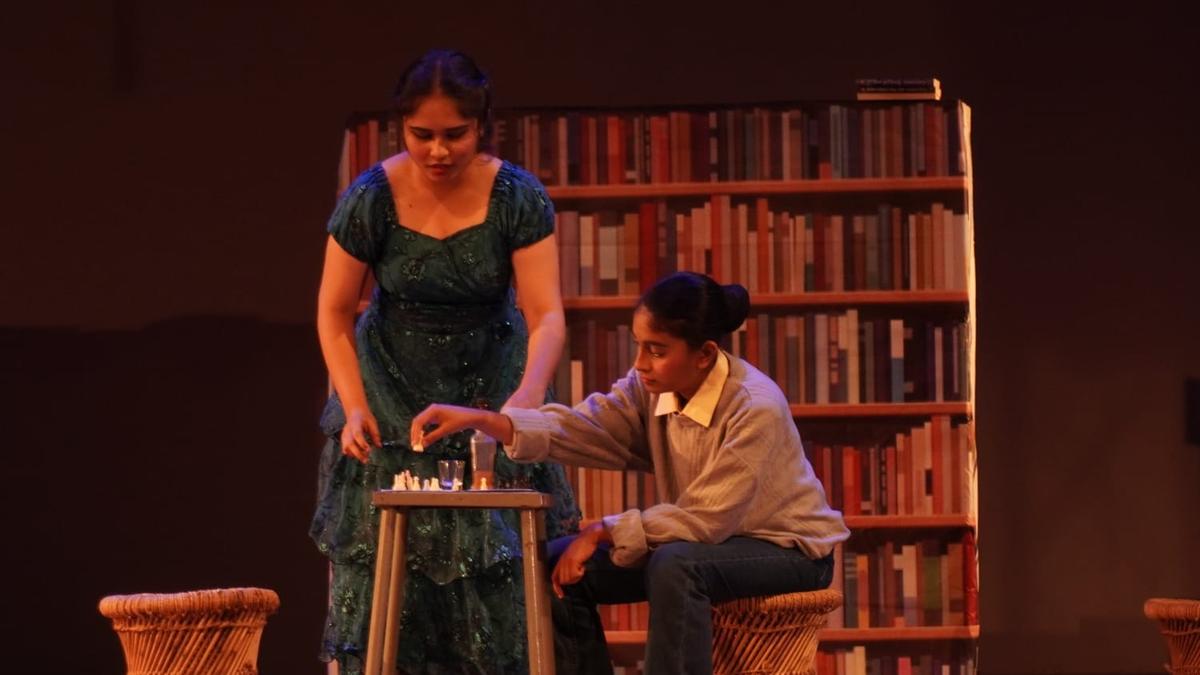
All study and no play: What ails college theatre clubs in Bengaluru? Premium
The Hindu
Bengaluru is home to a vibrant and dynamic amateur theatre scene, and the lifeblood of these troupes are students, a majority of whom are handpicked from college theatre clubs. The history of college theatre clubs in the city can be traced as far back as the year India gained Independence, 1947, when educator and rationalist Dr. H. Narasimhaiah started the National College Histrionic Club.
NMKRV College for Women, once synonymous with college theatre in South Bengaluru, was a force to reckon with at competitions. The recent years, however, had seen a slump. So, when the dry spell was broken after over a decade and the college won first place at an inter-collegiate competition, “it was surreal and exhilarating,” says Sumana A.S., a Kannada lecturer and convenor of Natya, the college theatre club.
Bengaluru is home to a vibrant and dynamic amateur theatre scene, and the lifeblood of these troupes are students, a majority of whom are handpicked from college theatre clubs. The history of college theatre clubs in the city can be traced as far back as the year India gained Independence, 1947, when educator and rationalist Dr. H. Narasimhaiah started the National College Histrionic Club.
The encouragement from many freedom fighters, literary figures and educators, who were aware of the deep impact theatre could have on the youth by helping raise social consciousness and challenge stereotypes, drove students to join college clubs. Several stage, television and film actors we know of in Kannada today have been products of such clubs.
“College theatre has been a huge gift to amateur theatre. A massive Kannada celluloid figure like Vishnuvardhan was a product of the Histrionic Club. Popular film actors like Ganesh, Prema, Kishore or directors like K.M. Chaitanya, have all come from college theatre,” says K.V. Nagaraj Murthy, the chairperson of the Karnataka Nataka Academy.
College theatre has also been known to hone students’ self-expression and social skills. “An all-round development requires different kinds of activities that can inspire a person and give them new insights. Theatre sharpens the mind, makes it more receptive, and gives people a better understanding of themselves, of human nature, and of humanity,” says Laxmi Chandrashekar, theatre artiste and former convenor of NMKRV’s Natya.
However, where colleges once vied with each other to get the best director, musicians or light technicians for their productions, today despite having more resources than ever at their disposal, the enthusiasm for theatre has noticeably waned among managements as well as students.
In most higher education institutions (HEIs), theatre clubs are necessitated by UGC guidelines and nurturing such clubs helps with better grades from the National Assessment and Accreditation Council (NAAC). NAAC’s assessment process is based on seven criteria. One such criterion is research, innovations, and extension (R, I, E) under which extra-curricular and co-curricular activities fall.

The Opposition BJP on Monday staged a State-wide protest against RTCs (Record of Rights, Tenancy and Crops) of some farmers attributing the land ownership to the waqf board and demanded that the Congress government amend the legislation concerned to protect farmers. The BJP also called upon farmers not to allow waqf officials to enter their land.

Stepping up her attack against the Bharatiya Janata Party(BJP), Priyanka Gandhi Vadra, Congress leader and United Democratic Front (UDF) candidate for the Wayanad Lok Sabha byelection, on Monday accused the BJP of “politicising” the landslides that struck this hill district on July 30, killing and displacing many residents.









